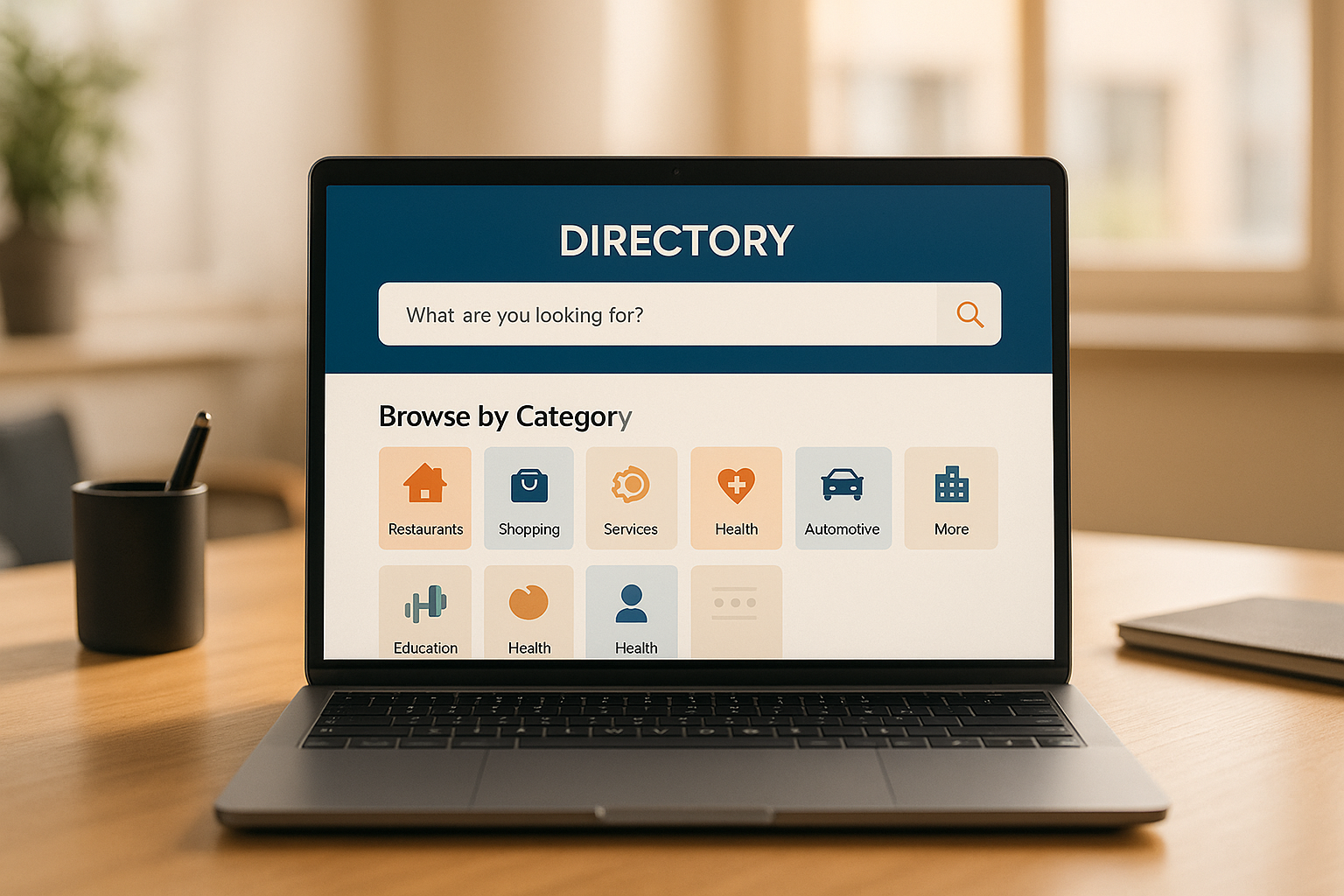

Building a Hospitals directory is a smart way to connect healthcare facilities with patients seeking medical care. Whether you're passionate about the healthcare industry or want to create a useful resource for your community, a well-designed directory can simplify the search process for both hospitals and patients. It's a win-win that fills a growing digital need.
You don't need to be a tech wizard to get started. With the right tools and a clear plan, you can create a platform that showcases Hospitals, highlights their unique offerings, and drives traffic to their doors. From choosing the right niche to organizing your directory for maximum usability, the process is simpler than you might think.
A Hospitals directory serves as a centralized platform to connect Hospitals with potential patients. It simplifies the process of finding medical care by offering detailed profiles, locations, contact information, and reviews. This fosters trust and encourages consultations.
An organized directory increases hospital visibility. Hospitals gain exposure to a wider audience, especially those searching for local services, which helps them stand out in a competitive market.
Users benefit from streamlined searches. Directories allow filtering by location, services, specializations, and ratings, providing an efficient way to compare options. This saves time and delivers tailored results.
Such directories support local economies. By promoting hospitals, they drive patients to nearby facilities, reinforcing community engagement while benefiting individual healthcare providers.
An effective Hospitals directory enhances user experience and promotes healthcare facilities. Key features ensure optimized navigation, detailed listings, and reliable user feedback.
Simplify navigation to help users find hospitals quickly. Use intuitive menu designs, clear categories, and logical organization. Ensure mobile responsiveness so users on any device can access and browse listings effortlessly.
Include detailed hospital profiles to provide useful information. Offer sections for hospital names, addresses, Google Maps location, contact details, working hours, services offered, and specialties. Add photos of the facility and staff to attract potential patients and build trust.
Advanced search tools can help users find suitable hospitals. Filters for location, services, specializations, and ratings can be added. Keyword-based searches can also be incorporated to refine results further, improving the platform's accuracy and efficiency.
Encourage users to leave reviews and rate hospitals. Display feedback prominently on profiles to improve credibility and guide potential patients. Use rating summaries to highlight top-performing hospitals based on overall user experiences.
Creating a Hospitals directory involves strategic planning, platform selection, and attention to user experience. Follow these steps to establish an effective and user-friendly directory.
Identify who your directory will serve and what you aim to achieve. Specify your primary users, such as patients seeking medical care and hospitals looking for visibility. Ensure your goals align with meeting user needs, driving engagement, and promoting healthcare services.
Directify is the ideal platform for building a Hospitals directory, offering a no-code directory builder, hassle-free solution that gets you up and running in minutes. With Directify, you can easily create a professional directory site without any technical or hosting concerns. It provides everything you need, including customizable themes, SEO optimization, and the ability to accept paid submissions. You can import and manage listings effortlessly, use your own domain, and even collaborate with team members through an intuitive interface.
Prepare detailed and accurate content for each listing. Feature hospital names, services offered, specializations, business hours, locations with maps, and contact information. Incorporate high-quality images and patient reviews. Group listings into categories to improve organization, such as "pediatrics" or "cardiology."
Apply SEO strategies to ensure your directory appears in search results. Use clear meta titles and descriptions, integrate location-specific keywords (e.g., "Hospitals in Brooklyn"), and create a fast-loading site. Incorporate structured data to enhance visibility in local searches. Enable social sharing to increase reach and engagement.
Step 1 - Gather Data
Google Maps is a powerful tool for sourcing business information. Here's how you can scrape the data:
Go to Apify:
Choose Actor:
You are able to customize the actor to scrape more data, e.g. website, email, phone number, etc.
Step 2 - Organize and Clean the Data
Once you have the CSV file:
Step 3 - Build the Directory with Directify
Directify is a powerful no-code directory builder that simplifies the process of creating professional directories. Follow these steps:
Set Up Directify:
Import Your Data:
Content:
Publish and Promote:
Analytics and Scripts:
Step 4 - Keep Your Directory Updated
Directories require regular updates to stay relevant:
Generating revenue from your Hospitals directory transforms it into a sustainable and profitable venture. Various monetization strategies ensure consistent income while providing value to hospitals and users.
Introducing paid listings allows hospitals to access premium features. To stand out, offer featured listings, enhanced profiles with more images, or priority placement in search results. Use tiered subscription plans, such as basic, standard, and premium, to cater to different budget levels. For example, premium plans could include detailed analytics or marketing insights, ensuring hospitals receive measurable value.
Display advertising creates income while promoting businesses connected to healthcare services. Use banner ads, sidebar widgets, or sponsored listings to feature medical products, healthcare brands, or equipment suppliers. Control ad placement through strategic segmentation to maintain user trust and relevance. For instance, showcase ads for related products on hospital profile pages.
Collaborate with brands in industries that complement healthcare. Promote affiliate products within your directory, such as medical equipment or health-related tools. Earn a commission on every sale from referral links integrated into hospital profiles or content sections. Build partnerships with brands that resonate with your audience for consistent earnings and credibility.
Building a Hospitals directory presents challenges that require proactive solutions to ensure seamless functionality. Addressing these obstacles strengthens your platform's performance and boosts user satisfaction.
Scalability issues can arise as your directory grows with increased hospital listings and user activity. Optimize scalability early by selecting a robust hosting solution capable of handling high traffic volumes. Implement a database structure that supports incremental growth by organizing data efficiently with indexing and caching. Use Content Delivery Networks (CDNs) to reduce server load and provide faster access to users across different locations.
Outdated information erodes trust and impacts the reliability of your directory. Establish a system for periodic review and updates by automating prompts that remind hospital administrators to verify their listings. Enable real-time updates through an admin dashboard, allowing hospitals to independently modify services, hours, and contact information. Monitor user feedback to identify inaccuracies and address them promptly.
Low user engagement affects the directory's success and profitability. Enhance engagement by offering personalized experiences, such as tailored search results based on user preferences. Introduce interactive features like favoriting hospitals or booking appointments directly through the platform. Use email marketing campaigns and push notifications judiciously to inform users about promotions or new listings. Regularly update content like health tips or trending medical news to keep users returning to your platform.
Boost visibility and attract users by developing targeted promotion strategies. Focus on connecting with your audience through digital platforms, local partnerships, and community engagement.
Utilize social media to reach both hospitals and potential patients. Create dedicated profiles for your directory on platforms like Facebook, Instagram, and LinkedIn. Post consistently to showcase featured hospitals, share patient testimonials, and provide health tips. Use engaging formats such as short videos, stories, or carousel posts to highlight top-rated hospitals.
Run targeted ad campaigns by defining demographic preferences like age, health needs, and location. Promote the directory through sponsored posts and geo-targeted ads to increase engagement.
Form partnerships with hospitals to strengthen the directory's reputation. Offer free or discounted initial listings to incentivize facility participation. Collaborate with hospital administrators to host events, such as health fairs or educational seminars, driving traffic to the directory.
Encourage hospitals to promote the platform by displaying branded materials like posters or QR codes in their facilities. Feature detailed profiles of hospitals that have partnered with you to increase their visibility and encourage others to join. Highlight success stories of hospitals that gained patients through your directory to build credibility.
Engage with online groups and forums relevant to healthcare seekers. Share valuable information about your directory on platforms like Reddit, health forums, and Facebook groups. Avoid overly promotional content; instead, provide useful advice while organically mentioning your directory.
Collaborate with health industry influencers or bloggers to widen your exposure. Partnering with medical professionals who align with your target audience builds trust and introduces your directory to a broader user base. By focusing on authentic interaction in online spaces, establish authority and drive traffic to the platform.
Building a Hospitals directory is a rewarding endeavor that benefits both healthcare providers and patients. By creating a platform that's easy to use, visually appealing, and packed with valuable features, you can bridge the gap between hospitals and their community. With careful planning, the right tools, and a focus on user experience, your directory can become a trusted resource in the healthcare industry.
Whether you're aiming to support healthcare facilities, grow a community, or generate income, a well-executed directory has the potential to achieve all these goals. Stay committed to improving functionality, engaging your audience, and adapting to challenges as they arise. The effort you invest will pay off in the form of a dynamic platform that serves its purpose effectively.
Start creating your professional directory website today with Directify's no-code platform.
Get Started Free







